|
Score: 95+/100 (9.5+ out of 10)
Escaping My Demons is a hard-hitting, riveting, emotional memoir by Joseph Fagarazzi! The book focuses on the turbulent and tense relationships between Joseph and his parents, particularly his selfish, abusive, and exploitative father. While books exploring domestic & childhood abuse are surprisingly (and unfortunately) common, this book is mesmerizing in its down-to-earth, level tone and scope. Rather than lingering in the trauma and accepting victimhood, Fagarazzi is a man wanting to move past this trauma, seeking to gain a long-awaited and hard-earned “happiness and inner-peace” in purging it from his being. We couldn't help but stand up and cheer for Joseph! And we couldn't help but grit our teeth, clench our fists, and even boo at Joseph's father (and occasionally mother and sister). Believe it or not, this book does not read like a series of complaints, nor does it come from a place of hatred and resentment. If anything, this book seems to come from a place of love—albeit a love taken advantage of and exploited. They say that your first love will always be your parents and that blood is thicker than water. Well, as we learned in Run Away Home by Catherine Manett, “family” doesn't always mean blood-related. This book is an example of how one's family can be so corrupt, wicked, and dysfunctional that it can actually be better to leave. So often in this book, we founded ourselves wanting to shout at the pages, telling Joseph not to listen/believe his father and go back to him. Yet, he kept going back. Why? Because he's a good guy, a good son, and a good brother. This book unravels the cobwebs—the Gordian knot—of manipulative tactics that a person like Joseph's father will use, the least of which are the many lies he concocted. What's extra frightening about Joseph father is how real and alive he seems. It's like if a horror villain stepped out of the page and into your home! What helps that phenomenon to happen is how Joseph's father isn't actually pure-evil, like some cartoon villain. He's not the monster under your bed, he's the man next door. He's someone so familiar and even relatable that it's extra scary! For example, father isn't a no-name from nowhere just trying to cause wanton mayhem, havoc, and destruction. He's actually a product of his time: the traumatic blemish on human history known as World War II. Father was a European/Italian man in the middle of a land that was tearing itself apart. Death awaited around every corner. No one could calmly run a business or go to school knowing that there might be an air-raid, mortars, or ground troops coming at any moment. You get the sense of how insecure and savage father became due to this environment and situation he grew up in. One thing that constantly stands out is how money-grubby he is. He constantly screws Joseph over for money. Perhaps the worst example of this is when he holds an event for Joseph and his new wife, Pam, only to surprise them with the bill. Another incident is when he sells Joseph's car to start his restaurant, which turns out to be a fish & chips business. For much of his life, it seems, Joseph was a gondolier, yes, those guys who paddle the little gondolas and sing songs. It is ironic since it seems like this would be a job for a very positive and patient person, and father turns out to be anything but positive and patient. He burns bridges with the other gondoliers who speak about him in hushed tones. Another thing that stands out about father's character is how lecherous and adulterous he is—constantly finding ways to cheat on mother. And, of course, he is physically abusive, not just to Joseph but to his mom. At one point, he even hits mom with a deep-fryer that could've left her permanently scalded. What's interesting is that mother is a bit of a firecracker herself. Despite being a victim herself, she can also be the victimizer. At one point, upon finding out about father's infidelity, she even chases him and tries to stab him with a kitchen knife like some horror villain. Yes, this is the kinda family that Joseph grew up with! It's a miracle he grew up to become a successful businessman and author! Going back to father and mother, they undergo their own stories and arcs, some of which deal with dwindling health (including a brain tumor) and the birth of their second child, a prized daughter whom they proceed to treat like a prized pet. There are times when it seems like the characters are close to reconciliation, and the atmosphere is tense. Some of us readers wanted them to make up. Most of us wanted them to never see each other again. Despite this being a book about family drama, it is never boring or stagnant. The characters travel from Italy to England and even Australia! The action is always moving and progressing. There are a lot of ups and even more downs. However, one of the bright spots of this book is how Joseph was able to develop into a very good marketer and businessman, so much so that his former employers at Bali Shoes would take notes while he was selling. Another bright spot is Joseph's relationship with Pam, which is beautiful and shows that even those who've been through traumas can come out the other side with love. We kept thinking about Pam throughout the second half of this book, wondering what she might be thinking or what she might be up to. We're told that Pam loved Joseph's parents, even when they were being horrible. We aren't quite sure how to feel about that. If the parents were still around, we might actually be concerned. This book was incredibly engaging and interesting, dare we say entertaining throughout. It was almost like watching a soap opera, only the realness added to the tension. Check it out on Amazon!
0 Comments
Score: 96/100 (9.6 out of 10)
There may be no greater miracle in life than giving birth to a new life. The BABY Book: Best Advice for Baby & You is an extraordinary, enlightening, highly-educational, and—best of all—useful book for expecting mothers (and their loved ones) by Karen Brewer. Childbearing is one of the most incredible aspects of human existence, but it is also one of the most stressful. A lot of that stress comes from one aspect of the experience: the uncertainty. This is especially true if you've never had a child before (and this happens to be your first). Uncertainty naturally leads to confusion, fear, apprehension, frustration, and anxiety. What does my baby's complexion mean? What does their breathing mean? What if they're pinker or redder than what I would expect? What if they're making strange noises or breathing funny? Why are they so warm/hot? What am I supposed to do if they start crying? What does my baby want/need? What if breastfeeding hurts too much or the shape of my nipple makes it difficult or impossible to breastfeed? Will my baby suffer because of me? What if I have a C-section or have to have a C-section? Does that make me a failure as a mom because I couldn't have the baby naturally? What if the baby is premature? Will it be ok? The baby's head and body are so big yet my hoo-hah is so small! How is it supposed to fit through there? What do you mean the baby's skull is actually not one hard, solid dome but actually six fragments?! What can I do to improve my baby's chances of survival? What can I do to help my baby to thrive and grow? What about all of these medications that are being pushed on us? What are they? Can I trust them? What about vaccines? How am I supposed to hold the baby? What are the different types of holds that have different strengths and weaknesses? What if I feel like one nipple is running out of milk and I need to feed with my other one? Can my baby see me or hear me? How much can they see and/or hear? What about circumcision? Why is it done? How is it done? Does it have to be done? What happens afterward? Why should I pay attention to the first pee? Why is gas build up so important? What do I do about vaginal swelling? What is penile torsion, a surprisingly common condition that impacts 1 in 80 baby boys? What do I eat or drink before, during, and after having my baby? Will I ever be normal again? When can I resume normal activities? How does walking up and down the halls of the hospital actually do anything to help? What if my body experienced damage from the experience? Will I be ok? What is mastitis and how do I avoid it? What is jaundice? How do I recognize it? What causes it? How do I avoid it? What do I do if I recognize that my baby has it? What about heart murmurs? Minor and severe ones? What do they mean and what do I do about it? What are the different maneuvers involved in childbearing like the McRoberts maneuver? Why is the reason this one nurse keeps pressing on me and massaging so hard? Are they sadistic or is there a purpose? What about postpartum depression? What causes it? How do you recognize it? What do you do about it? Why does my baby keeping spitting/spitting up? Is this really normal? Could it be caused by overfeeding? How are ice, broth, and clear liquids useful “snacks” for a mother after childbirth? What happens if an expecting mother is on drugs? Should they let the healthcare professionals know? Why? What is surfactant and how does it allow babies to breathe? Why is it often missing in preterm babies? What do I do about visitors before, during, and after birth? Should they be touching, kissing, hugging, and handling my baby? Is this increasing my baby's risk for illness in their vulnerable state? Is this leading to overstimulation and, thus, stress for the baby? What happens if a visitor/guest is unruly? How do I set boundaries for what can be shared by people on social media about me and my baby? What about hospital gifts? Who deals with them and brings them home? How do I ensure I'm not overwhelmed when it comes time to leave the hospital with my baby? Why shouldn't I co-sleep with my baby even if it calms them down? How is it dangerous? What is SIDS? What about binkies and pacifiers? Can/should I use them? Why can't hospitals provide them? What if the husband is not the father? Why might it be important to reveal who the biological father is? Could it reveal the baby's propensity for possible conditions, illnesses, and diseases? This book is encyclopedic, thorough, and exhaustive! So much thought, research, and effort went into putting this all together! We loved and appreciated that! Most of all, it's useful! Perhaps the most useful part of this entire book is how to identify why your baby is crying. Usually, it comes down to a baby trying to say/get across:
- Swaddling - Side/stomach positioning - Shushing - Swinging - Sucking Shushing and swinging for example replicate conditions the baby experienced inside of the womb (sound and movement). One of our favorite lines from the book is “just because it came out of the oven doesn't mean it's fully cooked.” This means that you may have successfully given birth to a baby but they still need time, room, and nurturing in order to develop. For example, their eyesight will be very limited at first. This book, while educational, is also funny, entertaining, and personable at times. For example, private parts are often referred to as “hoo-ha” or “hoo-hoo.” It often feels as though the author is speaking comfortingly and directly to the reader. Check it out on Amazon! Score: 93/100 (9.3 out of 10)
One Icy Night by W.A. Pepper is a fascinating novel that tackles three mind-bending thought experiments:
The storm forces the town's colorful occupants indoors where they are stuck with their drinks, their cards, and their secrets. Among these occupants are Sheriff Carolton Roberts, Carl Riley, Dante, and Stalin House. Rook finds herself apprehended, detained, and “under arrest” for much of this book after an attempted theft, and she desperately schemes to retrieve her ID and escape. Along the way, she learns that the town is the focus of a string of serial murders and missing people including the sheriff's own mother. There's also a mystery about two children—an older brother and a baby—who were victims of a disaster with only one surviving the ordeal. This story and its implications serve as the source of tension between the sheriff and Riley. Rook learns that she's not the only one who is in peril and captivity in the town, discovering that one of the older women there is being held in a home-prison, being deprived of insulin and, presumably, her other medications. Rook is mortified and takes this very personally since her own grandmother, her last surviving guardian (as her parents had died in a fire), had been dependent on her medications to survive. Rook makes it her personal mission—her raison d'entre--to rescue this woman once she is able to give Riley and the sheriff the slip. There's also a lovable gay man who is aptly-named Stalin House (for some reason) in this. Furthermore, there's Dante, who devolves into a shotgun-wielding, drunken moron who keeps getting himself set on fire (for some reason). Gosh, this town is full of some... interesting people. There's also Bekkahh, who we thought would become important, then disappears off the face of the earth for the rest of the book. Rook has some kind of boyfriend or lover who is in here once or twice, then likewise disappears into obscurity. Stalin is probably the most level-headed of the characters that Rook meets, and the two seem to become good friends. Stalin is considerate, kind, and compassionate, ironic considering his first name. He is the only one who genuinely seems to care about Rook while she's stuck in the town. He also has one of the best comeback lines. Whenever a character tries to use the Lord's name in vain, Stalin interjects with “...was crucified, dead, and buried.” The sheriff's mother is also a rather interesting character who is part of the town's greatest unsolved mystery. Could she be alive? Should we look forward to possibly finding her or should we be terrified? There are so many characters who could be the villain. Could it be Riley? Could it be Dante? Could it be the sheriff? Could it be the woman in the shed? Or is the killer at large or someone off-screen? How the villain was handled was both very interesting and a little rough. We don't want to spoil it. What we can say is that the surprise reveal felt really abrupt and forced, almost like the sudden turn of Hans in Frozen. It does kinda explain why certain characters act so weird and irrationally throughout the book. For example, why would law enforcement leave Rook with someone who seems so clearly-crazy and so clearly-homicidal? Someone who—just an hour ago—was chasing her around with a weapon and trying to kidnap and/or kill her? Doesn't that seem like a tragedy waiting to happen? Furthermore, why—if they were such good, law-abiding people--would they leave Rook (a violent criminal) alone to start one of their trucks? Why wouldn't they check her pockets for weapons (or the key)? That seems like common sense. Remember, these are rhetorical questions, we know the answers to them. So, by the end of the book, those types of things make a little more sense. The problem is, it's rough on the way there. It seems illogical. Most of the people in this book, besides maybe Stalin, Rook, and Rook's grandma (when she was alive), seem irrational, illogical, unreasonable, and maybe even un-human. You could argue that they all have traumatic pasts and are drunk for much of the book, but still... Take Dante for example. Dante is over here acting like a terminator, and it essentially gets laughed off. Riley is over here kidnapping a woman in plain sight of supposed law enforcement. A woman is very clearly dying from a lack of insulin, and everyone but Rook turns a blind eye to it. There's even a news anchor who loses his cool during the snow storm and goes on an expletive-filled rant about it on live TV. Yes, it's funny. Yes, it could happen, but how believable and how realistic is it? Are these real people? Are they even human? Again, it makes a little more sense once you get to the wild, crazy conclusion, but things just don't seem to make enough sense on the way to the conclusion. It's almost like the answer to the math question is 5, but the path to that answer is a 22-step math equation. The more complicated the solution to a problem is, the less sense it's going to make to the average person. Now, this book does a lot of things nicely. Once again, W.A. Pepper amazed us with his writing. There are some excellent passages in book like: “It's like holding a tissue over a crack in a dam” “Fight like you're wrestling the devil himself” “Let the bridges you burn light the way” “The laughs became sobs, which became gasps.” “...my middle name is Olivia, not Graceful.” “I grab the last bit of my beer and down it to chase this demon down my throat, but all the beer does is make the throat-demon angry.” “...never trust anyone who spells their name like they're trying to win at Scrabble.” “...the base holds to the ground like a grudge.” This is some of the best writing of the season! These passages include similes, sass, sarcasm, personification, and more. Another thing we liked is when the drama picked up at the end of the book. The final chase and confrontation, presumably over a frozen lake, is perfectly cut with Rook's memories of her grandmother and her best advice: “Fight like you're wrestling the devil himself.” There are also some very emotional moments, especially when discussing Rook's grandmother. So this book is an example of a work of fiction having some low-lows and high-highs, but it was an undeniably interesting read. Check it out on Amazon! Score: 88+/100 (8.8+ out of 10)
A Bright Summer is a super-steamy, hyper-erotic romance novel by Kate Smoak. If you are extremely horny or read novels in hopes of becoming extremely horny, this may be the book for you! We're not exaggerating! On a scale from 1-10 on the over-the-top sex, this is probably about a 15! There are likely over a dozen (if not two-dozen or more) sex scenes in this book, sometimes occurring in machine-gun fashion—one after the other! Geez, Luiz! These characters are friskier than a bunch of rabbits in the spring! No one seems to take a break or have a refractory period at all! Action movie stars need to reload more often than the people in this book! Geez! Do these people have like wells of seminal and vaginal fluid stored in their bodies? Where do they store all this stuff, in a black hole?! You need a dam the size of the Himalayas to keep this amount of juices in. Dang, people! There are probably more sex scenes in this book than Kairn by Fionne Foxxe Farraday and Water Witch by Kelly Brewer COMBINED! And that's saying a lot! Heck, there might be more sex scenes in this book than freakin' Viila and the Doomsday Affair by Roger Danchik or A Hundred Honeymoons by JS Wilson, but we have to admit that the sex in this book is far less disturbing and troubling than the sex in those books. In fact, we have to admit: the sex in this book is GREAT! It's vivid, it's detailed, it's descriptive, it's intense, it's passionate. Everything from the scent of the character, their hair, the firmness of their buttocks, their sounds, and their beads of sweat are described. This wouldn't be have bad if all of this didn't taint our perception of the characters themselves. They're supposed to be responsible, successful, disciplined, and hard-working people. Both Brandt and Elissa are extremely successful and reputable people (or at least we're told they are) and yet... they definitely don't come across that way with their approach to their sex lives and the multiple partners they go through by the end of this. How callous, flaky, airheaded, and irresponsible can these two idiots be when they have so much riding on staying upright? Their careers? Their livelihoods? Their legacies? And that's perhaps the point—whether we like it or not. Both Brandt and Elissa grew up and lived their lives with extremely high expectations and rigid discipline. They were brought up to be perfect, studious, upstanding, responsible people. They've been in mental and psychological cages their whole lives. So, when they finally get together and can be sexual/intimate, they EXPLODE! They ERUPT! They become...liberated... in a sense. The catalyst behind this book (and some would call its main “villain”) is Harold Black, the kingpin and owner of a multi-billion dollar media conglomerate. He is THE MAN. And he comes to Brandt Collins, the young yet successful owner of Collins Global Collective, with a proposition: court and marry his beautiful and academically-successful daughter, Elissa, and—together with Elissa—take over the business together. Brandt and Elissa are, effectively, the main protagonists and primary voices of the novel. They are also the central focus and main will-they/won't-they couple. It needs to be mentioned that, while Harold isn't the main focus of the novel, his presence and influence hovers over it. We learn that he is possessive, controlling, neglectful, and even abusive over Elissa, resulting in her being a bit of a perfectionist. Nothing she does is good enough for her father. She is also, ultimately, a pawn in her father's power game, the same as Brandt. It turns out that Brandt has had the hots for Elissa since he was a senior and she was s freshman in high school. They continuously go on and on about the roudness and firmness of each other's buttocks. Brandt is constantly talking about how his c***k gets hard and makes the front of his pants rise, which is funny and steamy sometimes while being creepy and disturbing at other times, especially when he keeps mentioning it. There are also two other somewhat-major characters in Rhys and Riley, friends of the main characters, who mostly serve as third wheels. They have their own drawn-out sex scenes, by the way. There are also Liam, Lexi, and Selena, characters who seem to serve as alternative sexual/romantic partners. Honestly, a lot of these supporting characters seem superfluous, especially considering that a lot of them get sections dedicated to them and even narrated by them. There's also an argument to be made that they hurt/hinder the likability of the main characters rather than helping or supporting them. We're supposed to be falling in love with the two protagonists. We should be falling in love with Brandt and Elissa. We should be cheering them along. Yet, every time they interact with Liam, Lexi, Selena, or these other partners, we can't help but be angry, frustrated, upset, and disappointed in the main characters. And here's what it boils down to: most people would probably tell you that if you really loved and cared about someone, you wouldn't cheat on them or sleep around. Yes, we get that not all relationships are exclusive, and that seems to be the case with this one. However, the way in which the main characters just willy-nilly sleep around and have sex with other partners, often knowing that it will hurt the other person, just makes us pissed off with them. As you might expect, there are also miscommunications and misunderstandings between them which cause tension. It's pretty standard romance novel stuff in that regard. But this book isn't really about the plot. It's about the sex. And the sex, again, is GREAT! The fire, passion, and intensity between the two leads really comes across through these scenes. The real issue we have with it (and it's a HUGE issue) is how UNEARNED these sex scenes seem. It's like figuratively and literally having multiple climaxes without having any build in terms of plot or characters sometimes. Normally, in a book, sex (or the first kiss) occurs near the end or middle of the book after undergoing a journey or surviving a crisis. It's supposed to feel deserved or earned. However, in this book, the characters are figuratively and literally just thrown together and pressed to screw each other's brains out from the get-go. There's barely any lead or build-up to it. Yes, we're told that Brandt had a crush on Elissa going back several years, but being told that and actually experiencing that history are two separate things. A lot of the things we learn about the characters happens long after the fact. So, there's a strange distance we feel with these characters who we're otherwise getting to know physically/sexually. They're almost more like toys than people—toys being crashed together like a bunch of jets or cars. It's a strange comparison, we know, but that's how it felt to us. There's also a sense we got like the sex in this book was taken for granted and not appreciated by the characters. It seemed like even THEY felt like it was unearned and undeserved—probably because it was. They were just showering in seminal and vaginal fluid. That too becomes problematic because it takes away from the realism of the characters and story. First of all, most of us can't have sex like 20 times a day without requiring a trip to the emergency room afterward. You also get the sense that these two have so much time to have sex, not just with each other but multiple other partners, how do they have time to do anything else? How do they run their business? It's kinda agitating because, again, it seems like these two don't earn or deserve anything. They're the equivalent of millionaire gamers who sit on their butts playing video games all day. Replace the games with sex. Second of all, most of us aren't heirs to a fortune. We're not 20-something year olds looking at possessing millions or billions of dollars straight out of college. That's all cool and all, and it plays into the fantasy aspect of this book, but it's also a bit cliché while also being unrelatable. By “cliche” we're referring to the fact that there are a lot of rich-lover romances out there including the 50 Shades of Gray. How unrelatable can two characters possibly be? Again, it creates distance with the characters rather than drawing us closer to them (like we should be). We kept writing in our notes that one character or another was an “@$$hole” for doing or saying something, particularly with another partner. There was so much about this book and characters that grinded our gears. However, it succeeds in one key way: presenting vivid, detailed, steamy sex like no other book we've read—even erotic or steamy romance ones. Check it out on Amazon if you're curious! Score: 96/100 (9.6 out of 10)
Ellie is a gorgeous and adventurous Golden Retriever with a lot of wisdom to share, drawing from her rich well of experiences! All of that (and more) are encapsulated in Ellie's Masterclass, a brilliantly-illustrated and beautifully executed book by Melissa Kahl! We have to get this out of the way first and foremost: the illustrations are PHENOMENAL! They're almost lifelike! What makes them even more impressive is the fact that the author not only wrote the book, she also illustrated it! We've seen our fair share of art, and this stands as one of the best examples. You can see the lines, the strokes, and the textures. You can even see the texture of the canvas itself! Ellie and her many animal friends really come to life! What more? We can see them all in a variety of settings and scenarios, each with its own background and details. On page 10, you get to see some of the many animal friends that Ellie has met along the way including chickens, orcas, and other dogs! On page 17, you can see the variety of places that Ellie has visited, from the Golden Gate Bridge in California to the Statue of Liberty in New York. On page 19, you get to see the many little blessings and beauties that Ellie has seen and witnessed including the breaching of a humpback whale, seeing a butterfly, finding blue flowers, laying alongside a campfire, and finding a big, ole' tree. Just listing or describing these things doesn't do the art justice. You have to see the art to believe it. Ellie has an aspect of her character that many dogs and dog owners will be able to relate to: a fascination with squirrels and a love for chasing them. However, the most powerful and meaningful aspects of Ellie's personality are her hope, optimism, and positivity! These things shine even brighter than her bright, golden fur! And that brings us to our next point: this book isn't just illustrated to near-perfection, but its message is beautiful and powerful. Furthermore, it's simple—so simple that an adult OR a child could follow it. This is a book about living. It's a book about living your best life, your happiest life, your most fulfilled life. It's a book about enjoying the snow and the rain. It's a book about making friends. It's a book about being conscientious, mindful, and grateful. It's a book about wondering, wandering (adventuring), and trusting your intuitions and instincts. It's a book about taking care of yourself by exercising and eating right. And, yet, it's only 40 pages long and an easy read! We really fell in love with this book, its lead character, its illustrations, and its message. Check it out! Score: 94/100 (9.4 out of 10)
The Believer Within You is an ambitious fiction book by Tyrone Burnett. It is brilliantly illustrated by Lena Tusevljakovic Orlovic! This is no exaggeration: this might be the best-illustrated book of the year so far! It often blurs the lines between fiction and non-fiction, drawing heavily upon the author's own experiences and the 2008 financial crisis. It also blurs the lines between a children's or middle-grade book and a book for adults. Believe it or not, this is a book targeted toward young people about ethics in business and real-estate! When we say business, we're not talking about starting a lemonade stand or selling girl scout cookies. No, far from that. And when we say real-estate, we're not talking about building a tree house or wanting to reserve space in town for a park. This is a SERIOUS book about subjects like audits, foreclosures, deeds, mortgages, taxes, scams, Ponzi schemes, insurance, the threat of destitution or homelessness, lending banks, corporate corruption, and government corruption. Yes, really! You could even make the argument that this book touches a bit on gerrymandering, the manipulation of a district's borders to give one party a political advantage (in voting power). Yeah, so this isn't your typical middle-grade book. On one hand, we greatly admired the heart, soul, thought, and effort that must've gone into crafting such an ambitious book. On the other hand, we're a bit confused as to who this book is supposed to appeal to or be read by. Even our MBA had to reread this book several times to understand the intricacies and complexities of all this business, legal, and ethics talk. It's a lot! This book is dense. It's full of knowledge, wisdom, and information—which is great—but it can also be overwhelming when it's so much all at once, packed into only about 80 pages. There's enough information in this to fill a small textbook. Again, that can be a great thing or a non-so-great thing depending on the kind of reader you are, your age, knowledge, and experience. Furthermore, although it does have a brief reference to religion and Christianity (about all hidden secrets being revealed), this really doesn't come across as a religious or Christian book, despite the title of the book implying that it is. You could possibly make the argument that it's a book about doing the right thing even when it's a difficult or uncomfortable thing, which Jesus would almost certainly approve of. However, you don't necessarily have to be a Christian to champion, agree with, or follow that message. An atheist could try to do the right thing with good intentions, for example. Also, although it is a middle-grade book starring a 12-year-old main character, there are a lot of aspects of this book—mainly its subject matter, wordiness, and complexity—that indicate to us that this is more for adults. It just happens to feature a young woman as a central character, be shorter in length, and feature colorful, inviting illustrations like a middle-grade book. The other small complaint and annoyance we had with this book is that it's written in present-tense. Everyone is free to write in whatever tense they want, however, it is preferable that a third-person fiction book be written in past-tense. The reason why is simply that it is easier and smoother to read a third-person fiction novel in past-tense because it sounds as though someone is describing events that have happened, which is how most of us are used to hearing stories. Present-tense makes it sound like a research paper. It makes it sound like a stage director setting the scene for the rest of the story. It doesn't sound or read very well with a full-length novel, especially when that novel is being told from a third-person, semi-omniscient perspective. It might make sense from a first-person perspective because a person talking from that perspective would be describing things as they are experiencing or seeing them. That's how the human brain processes things. We see, we interpret, when react/respond. However, what narrator is just sitting off-stage or looking down from the clouds telling us what they're seeing as they are seeing it? It's like trying to tow a heavy truck with a rope that's too long. It's like there's too much slack, so when the action actually happens, it's jarring. Likewise, when the narrator (the writing, not the narrator for the audiobook) is describing what is happening as it is happening (in present-tense), it sounds unnatural and jarring. It sounds more like the author teaching us something than the characters actually saying or thinking it. Avoid present-tense when writing a story like this. Use past-tense. It just reads so much better and sounds so much more natural. Anyway, let's get into more of the content of this book. This book follows 12-year-old Brenda Sue Bellamy who lives in Northern Gainesville, Florida. Something you might need to keep in mind about Brenda Sue (that we missed on the first reading) is that she aspires to be a journalist: someone who is supposed to tell and report the truth, the impartial truth, and nothing but the impartial truth. Brenda Sue overhears a suspicious conversation between Gary, her friend's sketchy dad, and an equally-sketchy stranger. The two talk about a scheme to get hopeful home buyers to sign off on fraudulent, phony, unsecured mortgages that will lead to all of them having their homes foreclosed. The rather confusing, complicated plot seems to be to create questions about the actual ownership of properties, leaving no paper trail so that the buyer cannot be accurately identified, then altering the real-estate parcel and tax map identifier to tie up the buyer in court while foreclosing on them. This would all happen to the financial benefit of the stranger, who works for Landsdowne Real Estate Operators (a homebuilder and residential property development agency), and Gary himself. This not only sounds unethical and illegal, it sounds downright evil! And it is! It's also very confusing! But it's a good thing that the author (and characters) go over it about twenty times. Perhaps the best explanation is from Brenda Sue's mother, who compares it to changing the name of a book's main character in the middle of it, deliberately causing confusion and taking advantage of it. Ultimately, it could lead to 10 million or more people losing their homes! It just so happens that Brenda Sue's mother, Ida Jean, is an auditor. However, her auditing agency was deliberately left out of the loop by both the corrupt county and the development agency/unscrupulous contractor. It's a good thing that Brenda Sue comes forward with this information and is able to work with her mom to stop these wicked people from leaving over 10 million children homeless while filling their own pockets. Like we said, this book has some rough things about it, primarily its complexity, writing, title, and general approach. It can be very confusing and convoluted. However, this book also does a lot of things exceptionally well. First and foremost, the illustrations are some of the best we've ever seen! The characters are beautiful, brilliant, expressive, and life-like. The backgrounds are too! Secondly, the general message of this book is also very important and powerful: do the right thing, even if it isn't the easy thing. Be a whistleblower. When you see evil taking place, don't just stand by and do nothing. Say something! Evil can only succeed when good people do nothing. Check it out! Score: 94+/100 (9.4+ out of 10)
Tales of Witches and Wyverns is an excellent YA fantasy novel by S. Ramsey! It features likable (dare we say lovable) characters, next-level world-building, and an overall pleasant reading experience. This book stars Enid, a teenage girl with a rich lineage, being descended from Sir Cai (probably better known as Sir Kay) and a powerful witch named Lady Sulis, both staples of Arthurian lore. And that was perhaps one of the pleasant surprises of this book: it's actually inspired by Arthurian lore (the stories of King Arthur and his knights of the round table)! It features a now-liberated version of Merlin (known as “Mr. Ambrose” in this book) and—perhaps more impressively—a powerful, feminized, yet strangely humanized version of Maligant (known as “Malagant”) in this book. However, the Arthurian lore is window dressing to what really drives this book: the characters and their chemistry. There is such great chemistry between the characters in this book! That all starts with Enid and Dylan—candidates for both “Best Couple” and “Best Dynamic Duo.” We learn more and more about Enid and Dylan as the book goes along. We learn about Enid's unique lineage and powers. We learn about Dylan being a betrothed prince and a water wyvern. However, again, that's really all window dressing. What you really need to take away from Enid and Dylan is that they are FRIENDS—practically lifers. And we don't say that lightly. It's not often as a reader that you can feel this degree of friendship, care, love, and camaraderie coming from two characters, yet Enid and Dylan emanate this. And that's even considering that Dylan is absent from the story for most of the book. It really doesn't matter because the power of the relationship is established from the get-go. Enid and Dylan have been friends since the age of nine when Dylan, a new kid on the block, was the first and only person to stand up for Enid when she was bullied. So, naturally, they became great friends. As an aside, Enid's main bully, Tommy, also has his own little arc, which we thought was a nice touch. Another great protagonist in this book is Rhodri, who first appears to us in the human realm as a dog-like creature, cursed by his emotionally and morally-conflicted sister, Ceridwin. The subplot and struggle between the two shapeshifting siblings is interesting and powerful in itself, but what's arguably even more touching and powerful is the bond that Rhodri shares with Enid, having been trapped in the form of her pet for so long. Now, you could make the argument that Rhodri is basically the Jacob Black (from Twilight) of a sort of love triangle, but that wouldn't be 100% accurate. Rhodri's love for Enid is similar but different than Dylan's. Rhodri and Enid share an almost mentor-mentee relationship. Rhodri teaches, looks after, and protects Enid the same way that Enid taught, looked after, and protected him when he was a hound. It also needs to be mentioned that shapeshifting in this book isn't limited to hounds or even wyverns. No, these shapeshifters can turn into a whole bunch of things! Even bears! Another great aspect of this book is the world-building. The alternate Fae/Arthurian realm, which features a magic system called Alchemy, is full of all sorts of strange and extraordinary creatures like the aforementioned wyverns and fae. It doesn't end there, however. There are kelpie, griffins, and even walking plants! Out of all the creatures that inhabit the land of Fae, perhaps the one that caught our attention the most is the Afanc, terrifying aquatic creatures (perhaps comparable to killer-mermaids or sirens) that, if caught, are able to grant a wish, usually at a tremendous cost to the one making the wish. The Afanc operate similar to Starn, the main villain of The Well by Barbara Hill. They prey on a person's wants, dreams, and desires, usually tricking them into making a wish to their own detriment. Can Enid be the noble one who can survive a Afanc encounter and make the right choice? Lastly, we have to talk about the main villain of this book, Malagant, queen of the Unseelie. Malagant is female in this telling of Arthurian lore. Uniquely, she's also an octopus-like creature similar to Ursula from The Little Mermaid. Despite her terrifying appearance, fearsome reputation, and reprehensible acts including the kidnapping of Dylan, Queen Malagant is not pure evil. She's actually quite a tragic and sympathetic character, which is why we said that she is humanized more than the Maligant of Arthur. See, Malagant's monstrous powers are pretty much a curse. They are a double-edged sword that cause her tremendous pain, pain that—if she were given a choice—she would trade away to rid herself of. Now, with that said, she's still a villain that needs to be stopped. And that's where Enid shines. Enid isn't this overpowered female protagonist. She's actually quite weak and vulnerable, especially since she really hasn't come into her own as a magic-wielder yet. However, where she shines is her cunning and intellect. Enid is a thinker and a strategist. She finds ways to get closer to her enemies rather than attacking them outright. She figures out their weaknesses, like when she is able to deduce that her enemy has three hearts. She identifies what creatures like the Afanc actually want and ways to work around their machinations. No, this book isn't perfect. And, no, it's not like nothing we've ever read before. In fact, it shares a lot of similarities with other works like Kelpie by Ashley Chapman and Magic, Mystery, and the Multiverse by Aurora Winter. However, this book provides some memorable characters, great chemistry between some of those characters, and top-notch world-building. Check it out on Amazon! Score: 91+/100 (9.1+ out of 10)
Roam Within: Macallah and the White World of Light by Maya Realm follows Mac (Macallah), a young orphan woman with a passion for literature and writing. Her publisher gives her a strange yet enticing assignment: to spend five weeks on a fishing vessel and to write about what she learns. She is also giving a mysterious old diary full of affirmations, words of wisdom, and revelations to read along the way. What begins as a pleasant, eye-opening adventure takes a dramatic turn for the worse as the captain's leg becomes gangrenous after being wounded by a hook, something which may threaten his very life. Meanwhile, the rest of the crew is engaged in completing a huge and difficult catch, and Macallah is the only one left who can treat and save the captain! In this tense, life-and-death moment they exchange words and secrets which are sure to catch the eyes and hearts of the reader. Darn! The author had us, then lost us. This was cropping up to be a very good, inspiring story about a young woman's journey to self-discovery. The romantic aspect of it was also pulling on our heartstrings. There was a sense of adventure, exploration, and wonder. There was tension and a real sense of danger. And then... that was lost. It was just inexplicably cast to the side in exchange for a mellow, disjointed, existentialist second-half. Somehow, this book goes from Macallah being an unlikely hero aboard a sailing vessel, forming a strong and meaningful relationship/emotional connection with Jake and his father, to exploring her sexuality on an island following some relatively random, unplanned encounters with the likes of Wayans and Zaku. Why? Well, we know why. It's because the author wanted the book to be different and unconventional. It's stated that their writing “may not appeal to the logical, conditioned mind.” And that's ok, be as wild and original as you want, but it's the reader's right to also feel a little cheated of the satisfaction that should've come from the initial plot. You can choose to have a plot that goes off the rails, to introduce new characters, and to confront new themes, but just don't be surprised when your readers—who were already immersed in where the plot was going—to get whiplash when you change directions on them. It's also because the author really wanted to talk about certain things like gender roles and LGBTQA+ issues. That's fine! That's cool! But... what happened to the exciting, thrilling seafaring adventure you were bringing us on? What happened to the relationship with Jake? The only thing we liked about Wayans is that they sexually fulfilled Mac, but beyond that, they weren't nearly as compelling as Jake, a character who was already developing and blooming like a flower in the spring. Why cut away abruptly and switch the focus to Wayans? What emotional connection do we have to Wayans? It's certainly not as powerful as the one we had with Jake. At least Zaku is somewhat interesting as a character, albeit somewhat out of place. We do appreciate that Zaku is apparently non-binary or trans after wrestling with their identity for years. It's interesting that they developed a whole video game to help them (and others) to escape. However, again... what happened to the exciting, thrilling seafaring adventure you were bringing us on? Seriously! Wasn't it supposed to last five weeks? How are we now magically on land, magically safe from harm, magically magical, and chilling out with people who love and are fulfilling our every need? What happened to the danger? The suspense? The tension? This book looked like it was going to be a Moby Dick-like seafaring adventure in which a lone woman—a fish out of water—is stuck at sea with grown men who have conflicting passions and ideologies. The setup was great. The characters were compelling. The tension was palpable. Lives were at stake. Then, it was as if the author just decided to write a different story entirely, completely derailing the good thing they had going. How did we go from a dude almost dying aboard a ship called Dragon Balls (by the way) to talking about Tia Valiah's “heavenly” pies. What happened to the plot? What happened to the structure? What happened to the pacing? What happened to the flow? Now, with all that said, this is still a good and worthwhile book. It just isn't as great as it could have been had the author just stayed focused. The writing is, at times, extraordinary! Truly! Here are some of our favorite lines: “Whatever one creates in one's own mind cannot be forcefully changed.” “He has his path, just like you have yours.” “Everyone ripens at their own speed.” “...full as the ocean and empty as air” It is also nice for those who are trans or non-binary to have characters they can relate to. Check it out on Amazon! Score: 94+/100 (9.4+ out of 10)
We didn't have much poetry come our way this season, but if we did, this would be at the top of the list! Thoughts & Musings is an excellent, well-crafted, eloquently-worded, and thought-provoking collection of (mostly Christian) poems and “musings” (short, thoughtful prose) by PK Rankin! This book also features solid and fitting illustrations by Cesar Lista to accompany many of the poems. Unlike many other poetry books with illustrations, these illustrations are actually quite good and enhance the finished product rather than distracting or detracting from it. Well, you have to make an exception for the first illustration. That's a small miss. The people in these illustrations actually look like people and not like deformed 12-bit characters! They actually look better than that. In fact, the colored illustrations of the couple on page 44 & 50 are brilliant! In fact, the illustration on page 50 may be one of the better illustrations of the whole season! It's almost Don Bluth or Disney quality! Credit to Cesar Lista for really enhancing and elevating this book! There are also several photographs provided by the author, particularly of their loved ones who serve as muses and inspirations behind certain poems. However, you're probably not picking up this book for illustrations or photographs. You're picking up this poetry book for the poetry—for the writing. And in that regard, this book also delivers! The book opens up STRONG with one of its best poems, titled Life. At first glance, this seems like a short, standard, traditional poem with quatrains and an ABAB rhyme scheme, but it's so much more than that! These aren't run-of-the-mill rhymes. The poet marries the “OOH” sound in “doom” with “consumed.” They marry the “EE” sound in “plead” with “decree.” The “urh” sound in “search” is paired with “church.” These are words with similar sounds with suffixes that are spelled entirely differently. The musing titled The Author features one of our favorite lines in the book: “Merely a spot of ink on the grand pages of history. And, yet, at the same time, each second, we live is an entire microcosm onto itself.” What does this mean? Well, to us it means that the universe might be so much bigger than us, however, it's still impressive to think that we're a part of it—and that we matter in it. And that goes along with one of the themes of the book: our special place in the universe as a creation crafted by God. There are a few allusions (if not direct references) to The Bible. For example, “When I was no longer a child, I put aside childish things” sounds an awful lot like a lesser-known part of everyone's favorite Corinthians verse: 1 Corinthians 13 (you know, the one about what love is?). Now, there are two poems/musings (along with Life) that really stand out as extraordinary: Freedom is Messy and Start Living. Freedom is Messy is probably the boldest and (arguably) best poem in the book. It is epic in scope and brave in its stance: reminding the reader (and humanity) why freedom is so precious, valued, and something worth fighting for. It's also a reminder of how freedom is a double-edged sword, a gift from God that—with the power of choice—we can do good or evil with. And this is what makes it so “messy” as the poem constantly reminds us. In fact, you can make the argument that this poem takes a stronger stance toward respecting the power of freedom and not taking advantage of it. Freedom isn't something to take for granted. It's also something we need to be responsible with and not abuse. Freedom doesn't mean doing whatever you want, it's about having the power of choice and making the right choices. One of the key lines in this poem, we think, is: “Our republic, in God's word, was heavily grounded!” This indicates that the writer feels that we are losing the foundations and principles on which our constitution was written and our nation was built. Start Living is also a standout work, although perhaps not to the level of Freedom is Messy. This musing concerns the complacency of people and how we don't value our lives enough to take risks with it. We love to stay inside our comfort zone and feel safe and comfortable. We're afraid to speak out or tell our “truth” because we're afraid of offending people or being canceled. The key word here is “uncontroversial.” Everything most people seek to do is “normal” and “uncontroversial.” Is that really living? There are also some poems/musings about love that didn't wow us quite as much, but we did come away with a cool line about how love is like respect, it's something earned! This collection is great food for thought, especially for Christians and people of faith. It's enhanced by great writing and impressive illustrations. Check it out on Amazon! Score: 93/100 (9.3 out of 10)
We might look different. We might have different colored skin. We might have different colored eyes and/or hair. We might be from a different country or follow a different religion. We might come from a different culture. We might wear different clothes or speak a different language. We might like different things. However, we're all human and we can all be friends! We have a lot more in common as human beings than we often realize. And that's the heart and center of We Are Different but a Lot Alike by Linda Guest-Peters, a children's book that emphasizes that we may differ in likes and opinions, but we can all find common ground and become friends. This is a beautiful and powerful message for children. Future generations are becoming more connected and tolerant than ever. Perhaps for the first time in human history, it's finally okay to be yourself rather than to follow the status quo. Choice, individuality, and freedom are not just keys to creativity and innovation, they're also key to happiness. How many conflict or even wars could have been avoided or prevented if people had just thought about the things that connected them instead of the things that divided them? We are seeing two large wars, one between Ukraine and Russia and another between Palestinians and Israelis, in which each of the warring groups shares the same ancestry and even similar cultures. While this book never gets so deep and broad, it has deep and broad implications. We very much enjoyed its inclusive and friendly message! On a micro level, this book could also serve to teach kids how we all don't need to like and enjoy the same things. Just because Bobby likes skateboards but Jimmy likes bicycles is no reason for them to argue and fight—they can do them both and enjoy them both! Just because Tabitha likes popcorn but Jessica likes nachos doesn't mean they should argue and fight—they can eat and enjoy them both! We also enjoyed the art, though it isn't as bright, vibrant, and impressive as art in other children's books this year. The main thing is that it accomplished its purpose. Check it out on Amazon! |
Archives
July 2024
Categories |
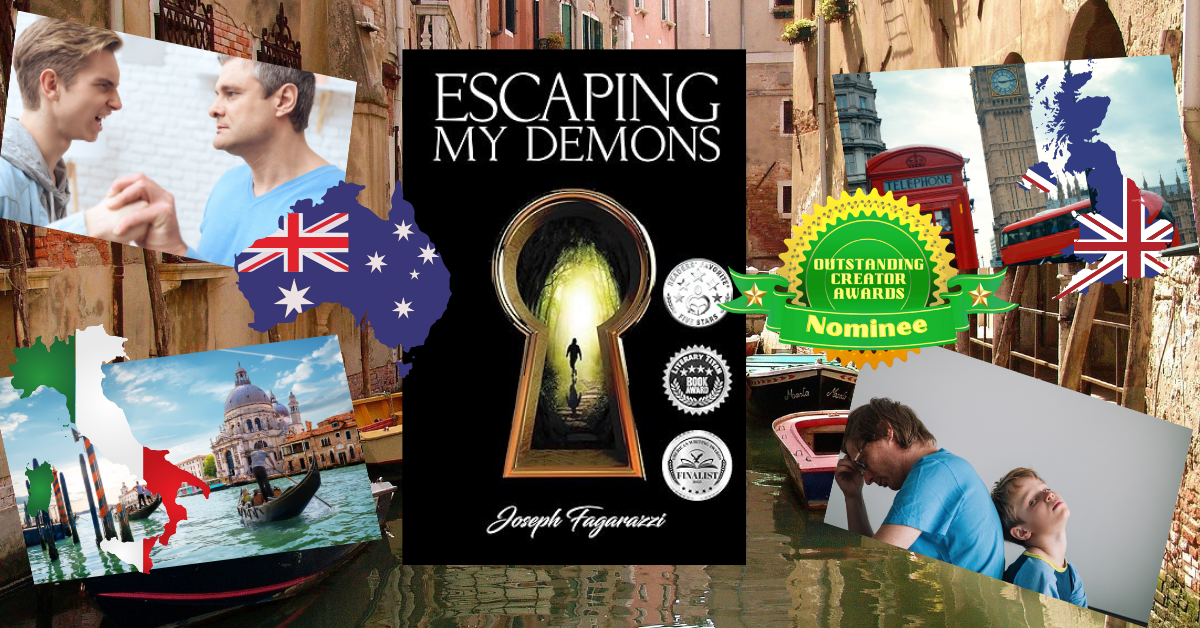
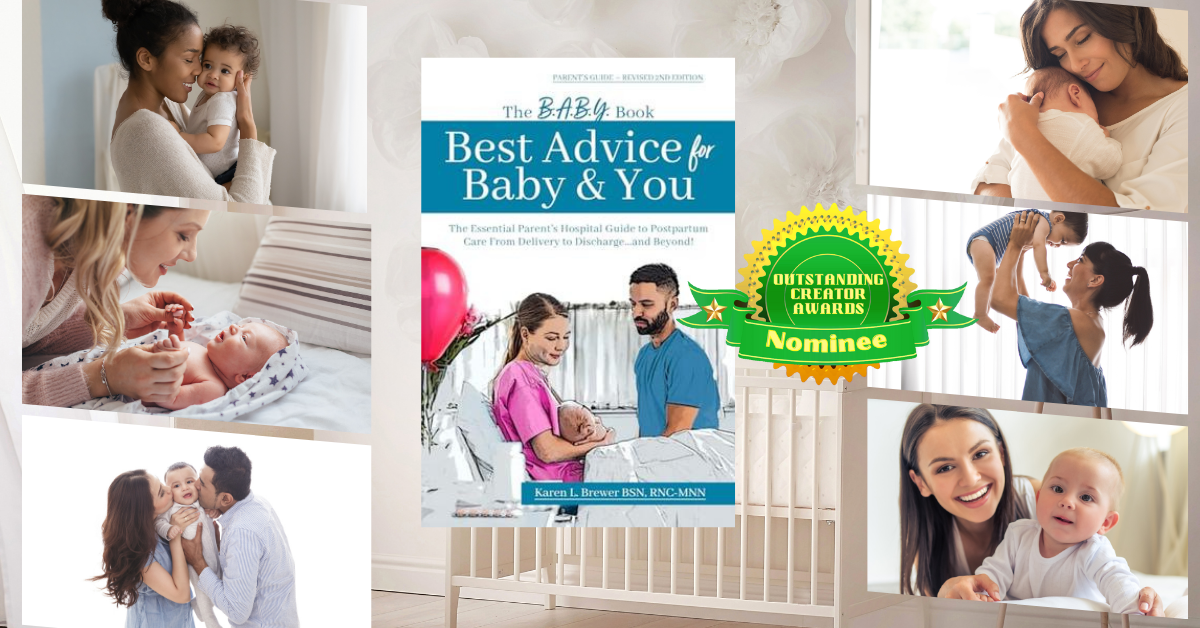
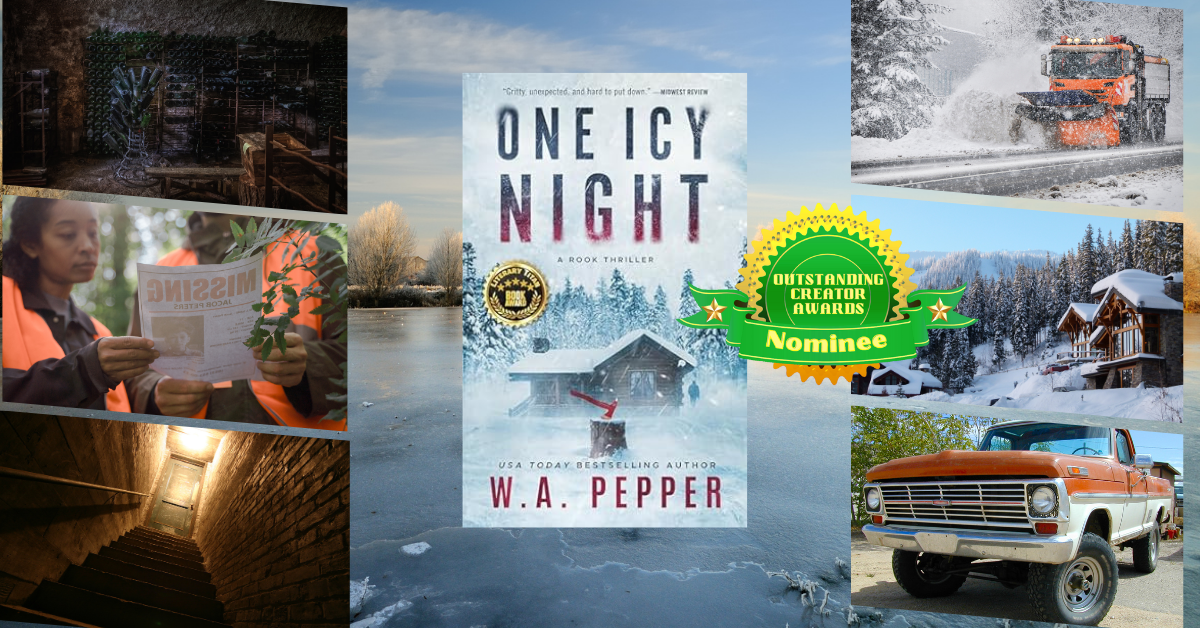
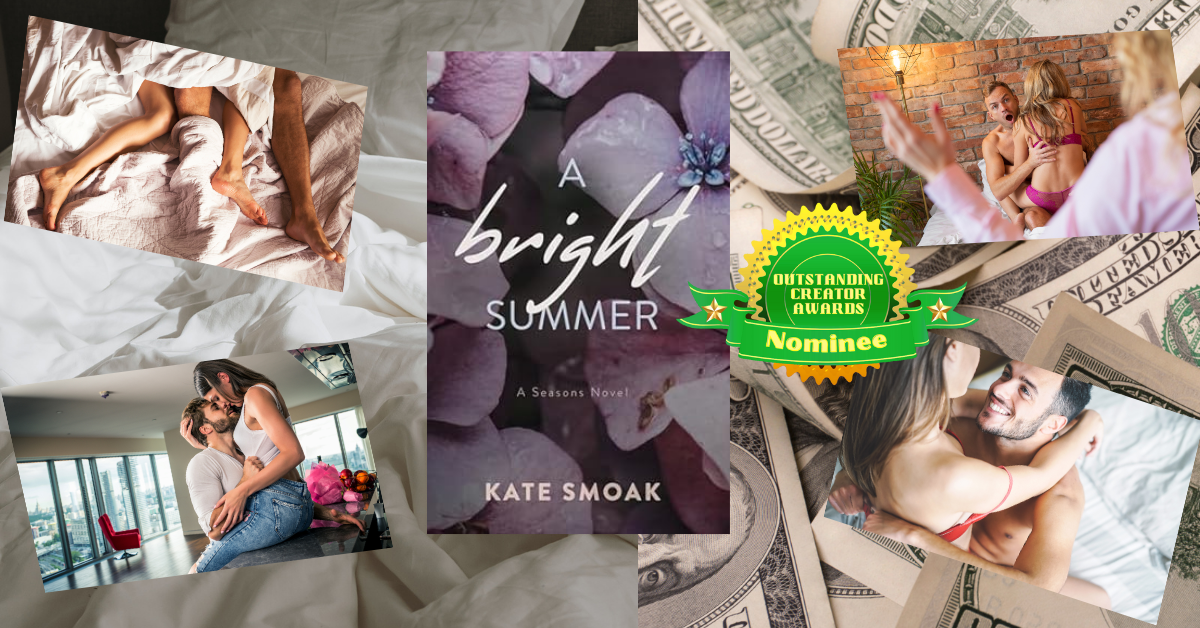

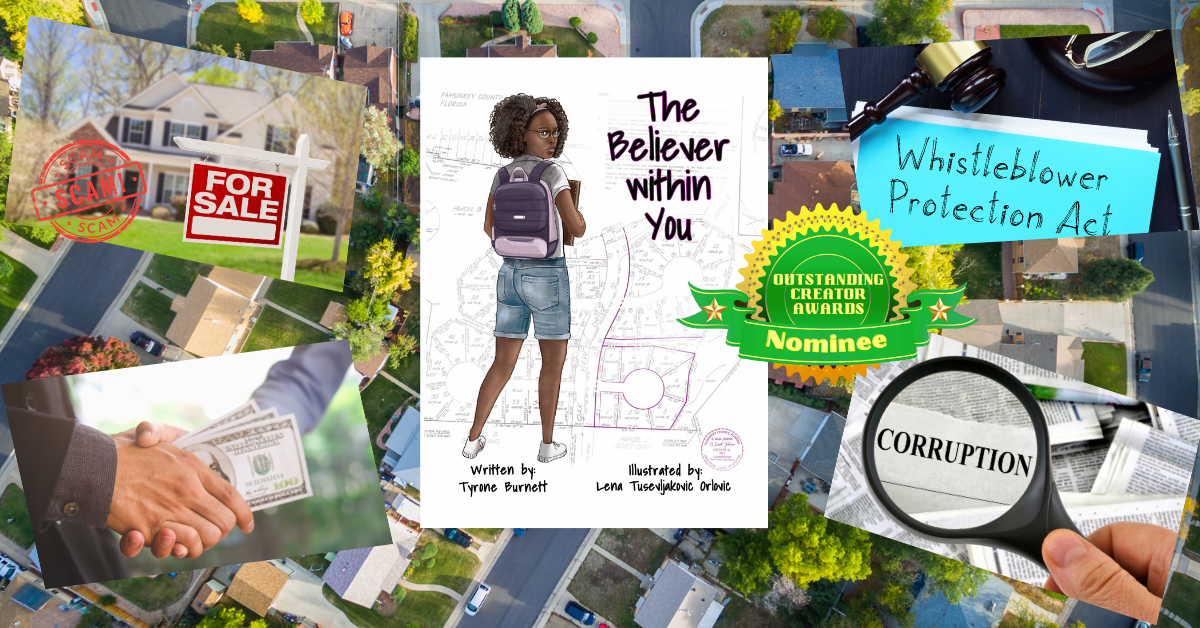
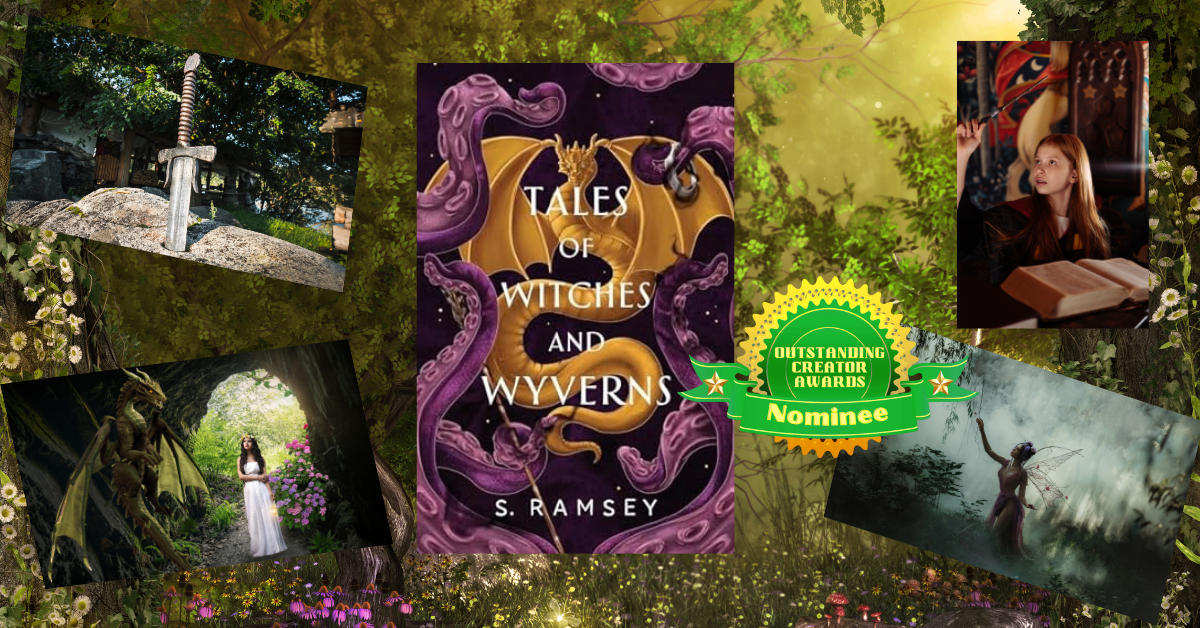

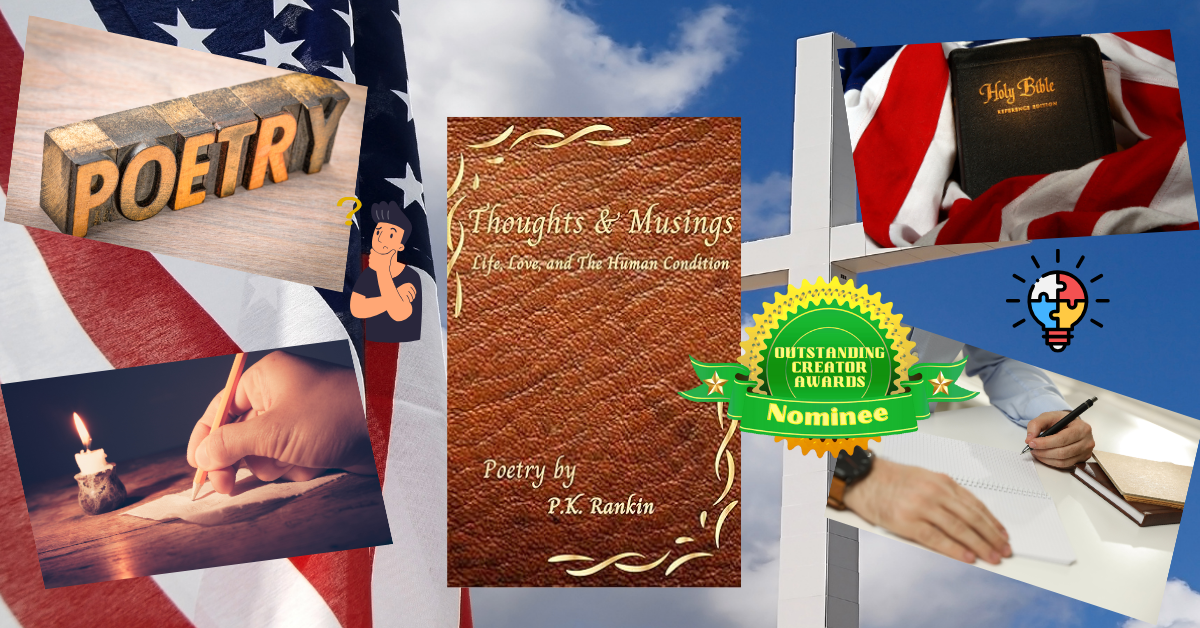
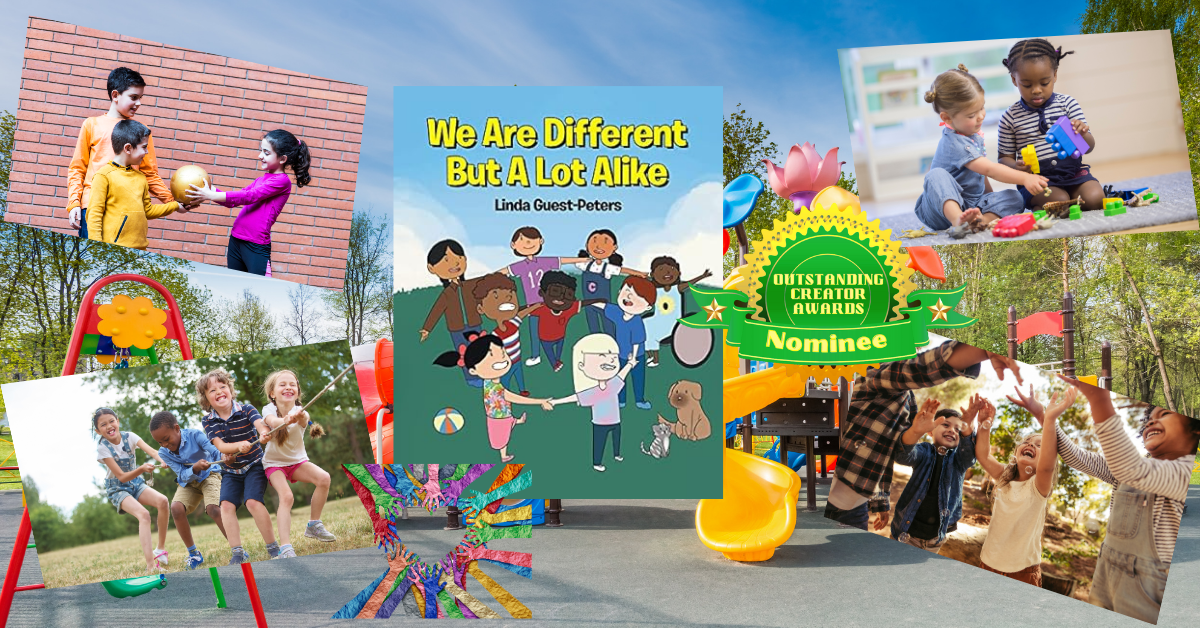
 RSS Feed
RSS Feed